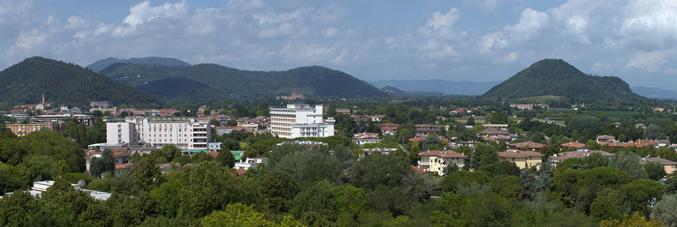
Thermal medicine and patients with chronic disease: a new research project
20.09.2021
The University of Padua, the Cariparo Foundation, and the Foundation for Thermal Scientific Research, Veneto Pietro Allen Thermal Studies Center, and the Municipality of Abano Terme collectively launched a three-year research project. Financed with 470,000 euros and in correlation to the relaunch of local thermal springs, the project aims to discover new integration models between thermal treatment and rehabilitation therapy for chronic diseases, and sponsored by the Chair of Physical Medicine and Rehabilitation of the University of Padua.
Aimed to expand the current rehabilitation benefits of thermal springs by developing and validating specific therapeutic pathways in people with chronic or transient disabilities, the project includes creating a database linking scientific data with the spa areas found throughout Italy.
The World Health Organization classifies thermal medicine as a medical discipline to treat and prevent various pathological conditions. Thermal medicine is a natural, complementary, and integrative medical application.
The Covid-19 pandemic brought many challenges to the thermal spring sector from an entrepreneurial and economic point of view. The situation represented a never-before opportunity for updating and relaunching the entire thermal spring sector. The pandemic brought a challenge to insiders as our society continues to demand the attention of issues related to physical health and well-being. In this innovative vision, thermal springs can represent an alternative to traditional hospital rehabilitation treatments.
University of Padua Rector Rosario Rizzuto explains, "This project exposes the historical resource of the local territory by combining thermal medicine with scientific institutions capable of working in great synergy. The study, coordinated by Professor Stefano Masiero, is a brilliant example of teamwork by demonstrating how being at the forefront of research inextricably links the University to the local territory."
Scientific coordinator Prof Stefano Masiero describes the project, ”The main objective is to define new and innovative synergistic rehabilitation models in the thermal environment by combining traditional thermal therapy for patients suffering from the long-term effects of the post-COVID-19 syndrome (Long COVIC), osteoarthritis, and lymphedema secondary to mastectomy. While the scientific investigation into the immunological and inflammatory response mechanisms of thermal rehabilitation treatments, the project also includes creating an online database. A systematic collection of clinical-functional data of patients who attend the various national thermal-rehabilitation facilities will represent a further step towards expanding knowledge in this area."



